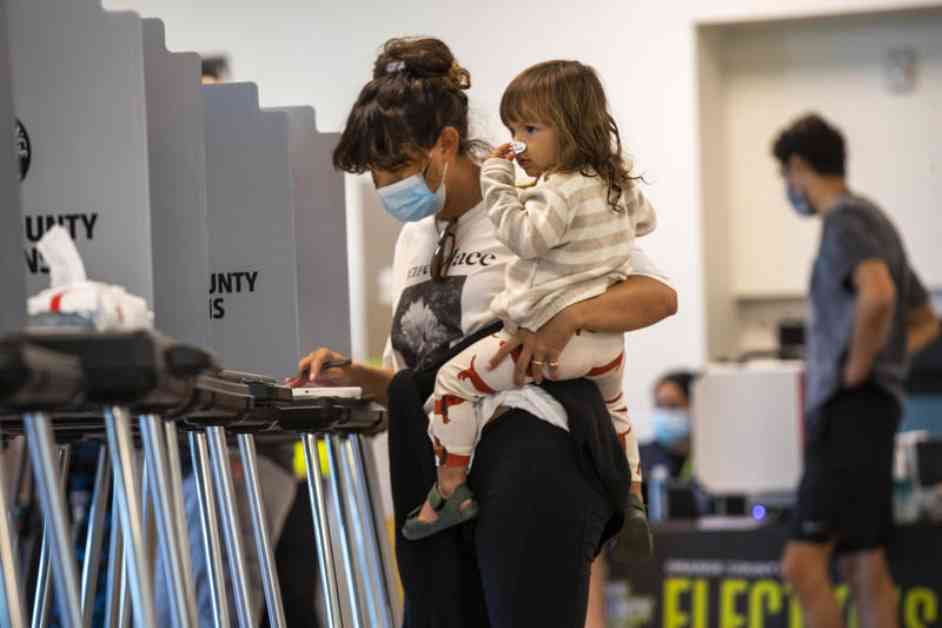Children have the potential to be active participants in shaping the future through civic engagement and education. Encouraging children to participate in the voting process from a young age can help them develop a sense of civic responsibility and understand the impact of individual actions on the broader community. By introducing children to voting early on, we can nurture informed and engaged citizens for the future.
Unfortunately, there are barriers that prevent some parents from bringing their children to vote, such as lack of access to childcare. This can be a form of indirect voter suppression, particularly for single parents or those in underserved areas. Misinformation around voting options can also impact parents’ ability to participate in the voting process. It’s important for every eligible voter to be well-informed about their rights to ensure equal access to voting.
California has taken steps to enhance accessibility and participation for voters, including allowing teens aged 16 and 17 to pre-register online for automatic registration upon turning 18. Recognizing the importance of civic engagement among young people, efforts to expand access and participation are crucial. Gen Z, the youngest of whom are 12 years old, have shown higher voting rates than previous generations, highlighting the impact of early civic education.
Bringing children to the voting booth can have a positive impact on families and communities by fostering meaningful discussions about democracy and civic issues. Children’s awareness of civic issues can also influence their parents’ views, creating a process of “trickle-up socialization.” By engaging children in the voting process, we can inspire an informed and engaged generation of citizens.
While American knowledge of civic engagement has declined in recent years, parents can play a crucial role in educating their children about the democratic process. Making a family voting plan and participating in elections together can help instill democratic values early on. Practical considerations for voting with children in California include accompanying minors under 18 to the polling place, utilizing educational resources, and engaging in discussions about relevant issues.
Voting with kids in elections, such as the upcoming presidential election, is not only allowed but serves as a valuable learning experience for children. It can help prepare them for future elections and reinforce democratic values. By involving children in the voting process, we can contribute to building a more informed and engaged citizenry for the future.




















